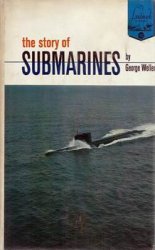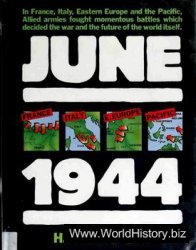The enthusiasm that greeted the Good Friday Agreement dampened not long after, as the implementation of the peace process began to prove difficult. In addition, numerous acts of outrage numbed public sensitivities. In July 1998 a loyalist firebomb killed three young Catholic brothers in their home in Bally-money, County Antrim. Then, in August, dissident republicans, who had not accepted the cease-fire, set off a bomb in Omagh, County Tyrone, which killed 29. Still, several events kept the momentum of the peace process in motion: In June an independent commission was named to recommend police reforms in Northern Ireland; in July a parades commission forbade the Orange Order from marching down the contested route of the Garvaghy Road in Portadown; in September, President Clinton, who was on the eve of an impeachment inquiry, revisited Ireland and Northern Ireland, including Omagh; in October, John Hume, the SDLP leader, and David Trimble, the Ulster Unionist leader, were named as the Nobel Prize laureates for Peace; and, in November, President McAleese and Queen Elizabeth in November opened a tower in Mesen, Belgium, commemorating the Irish who had died in the First World War.
Later incidents, such as the murder of Rosemary Nelson, a solicitor who defended republicans, in a March 1999 car-bomb explosion, and the admission of responsibility by the IRA for the killing of a number of persons who had been missing since the 1970s, including one whose remains were discovered in May, created an atmosphere of apprehension, as did the ongoing killings, shootings, and evictions within their own communities by republican and loyalists ostensibly to exercise community discipline.
The nonattendance by Unionists in the Northern Ireland Assembly because of the lack of movement by the IRA in decommissioning its stockpile of weapons and explosives resulted in adjournment of the assembly in July 1999. Both governments published in the same month a document titled The Way Forward, which laid out the complex mechanism by which the assembly would select its power-sharing ministers as well as a procedure to suspend the assembly if neither a government was established nor weapons were decommissioned by the following May. In September, the independent commission on police reform, which was headed by Conservative politician Christopher Patten, but which also included figures from Northern Ireland, Ireland, and the United States, issued its report that called for significant police reforms emphasizing decentralization of structure, community input, a quota recruitment to insure a large presence of Catholics on the force, the removal of symbols associated with union with Britain, the disbanding of the permanent auxiliary police, and the renaming of the police force so as to drop the "Royal" and the "Ulster" terminology.
Also in September 1999, Senator George Mitchell returned to Northern Ireland to begin a review of the Good Friday Agreement with the various political parties, although the Unionists and Sinn Fein did not meet directly in their participation, and the DUP did not take part other than giving its views to Mitchell. The following month Peter Mandelson, a close political associate of Prime Minister Tony Blair who had replaced Mo Mowlam as the secretary of state for Northern Ireland, together with Mitchell issued a report calling for the reestablishment of the suspended Northern Ireland Assembly because the IRA had indicated a willingness to send a representative to meet with the International Commission on Decommission, headed by General John de Chastelain. The Unionists agreed and the reconvened Northern Ireland Assembly met and elected a 10-member executive council according to the d'Hondt rules of proportional selection.2! David Trimble served as the first minister and Seamus Mallon of the SDLP as the second minister. Martin McGuinness of Sinn Fein and Peter Robinson of the DUP were also ministers. The next month the powers of devolved government were transferred from the Northern Ireland Office to the Northern Ireland Executive. However, by February 2000 the failure of the IRA to commence decommissioning resulted in the Northern Ireland Executive again being suspended and direct rule from Westminster restored. It was restored yet again in May after the IRA promised to initiate a process to put arms beyond use.
A year later, in July 2001, David Trimble resigned as first minister in protest at the lack of progress on the decommissioning of weapons by the IRA. His associate Reg Empey assumed the role of acting first minister. The following month, the Northern Ireland Assembly was temporarily suspended to allow a delay of six weeks for the parties to resolve differences, particularly with regard to the issue of decommissioning and then to select a permanent first minister. In October, when there had been no progress on decommissioning, the Ulster Unionist and DUP ministers of the executive announced their resignation from the executive, which would have ended the devolved government. However, five days later, the IRA decommissioned some weapons to the satisfaction of the International Commission and the resigned ministers resumed their positions. The next month, Mark Durkan from Derry replaced John Hume as the leader of the SDLP and succeeded Seamus Mallon as deputy first minister.
While the new executive functioned satisfactorily and the ministers from the more extreme parties, the DUP and Sinn Fein, demonstrated an impressive administrative capacity, the continued possession of weapons by the IRA and violent actions and acts of criminality on the part of assorted paramilitaries, including the IRA, caused the Ulster Unionist Council to demand in September that its ministers withdraw from the executive by January if the IRA and Sinn Fein had not demonstrated their commitment to nonviolence and democracy. Earlier in the year, in March, suspicions appeared that the IRA had stolen a document from the Special Branch office of the police, now called the Police Service of Northern Ireland in place of the Royal Ulster Constabulary. In June a database was discovered in the possession of the IRA listing public officials and members of the security forces. Then, in October, the police raided the Sinn Fein offices in Belfast to investigate possible republican intelligence-gathering 14 and infiltration of the Northern Ireland Office.15 Subsequently, the Northern Ireland Assembly was suspended until Sinn Fein, as a participant and as a component of the executive, demonstrated that it had ended its links with the IRA.
In April 2003 U. S. president George W. Bush met in Northern Ireland to confer with Prime Minister Blair on the military campaign in Iraq, and he also met with Northern Ireland parties. The following month, the British and Irish governments issued a joint declaration linking the restoration of Northern Ireland institutions to the reduction of security forces and the repeal of antiterrorist legislation. It asked that an International Monitoring Commission be formed to report on violations of the Good Friday Agreement, specifically the continuation of acts of violence, and demanded an end to paramilitary activity, particularly punishment attacks. The commission came into being the following September.
In June Trimble survived a challenge to his leadership of the Ulster Unionist Party when the party council did not accept a proposal disapproving the Anglo-Irish Joint Declaration, but three members of the House of Commons resigned from the Unionist Party in Westminster in opposition to it. In October, Trimble himself regarded an act of decommissioning witnessed by General de Chastelain as insufficiently transparent, and he subsequently stated that he would not share power with Sinn Fein without a full inventory of IRA weapons and a decommissioning timetable. The next month an election to the Northern Ireland Assembly saw a drastic change in the party composition, as the DUP with 30 members surpassed the 27-member Ulster Unionists, and Sinn Fein's 24 members exceeded the SDLP's 18. The Sinn Fein gained seats in the European parliament election the following June, when its candidate won the seat previously occupied by the retiring John Hume.
Alas, the peace process had arrived at the dilemma that had been feared by earlier peace-makers, the ascendancy of the extremes. Originally the advocates of power sharing, from the days of Sunningdale through Hillsborough, and even the Good Friday Agreement, had assumed that the bridge to community reconciliation and peace would be constructed about the middle of the road parties. Now the task was to bring the Democratic Unionist Party, led by Ian Paisley, and Sinn Fein, led by Gerry Adams, to share power. The major obstacle remained decommissioning, or more precisely, the method of verifying the decommissioning. The DUP insisted on the procedure being photographed, which the Irish and British governments approved, but which Sinn Fein regarded as humiliating to the IRA. While a hopeful note was the decrease in paramilitary activity as noted in recent International Monitoring Commission reports, negotiations to restore the power-sharing institutions failed as Sinn Fein and the DUP failed to agree on the method of verification of decommissioning. Soon after there was a ?22 million robbery in the Northern Bank in Belfast, which a few weeks later in January 2005, the Police Service of Northern Ireland, with the concurrence of the government of Ireland, claimed was done by the Provisional IRA. Later that month a grisly murder outside a bar in
Belfast of Robert McCartney was attributed to Provisional IRA members. The sisters and partner of the dead man claimed IRA intimidation inhibited witness cooperation in a police investigation. In February a number of men were apprehended in Cork and more than ?2.3 million was found, which was regarded as part of the earlier Belfast heist. The visit by the McCartney family and the bank robbery made Sinn Fein unwelcome in the White House on St. Patrick's Day and incurred general condemnation from leading Irish-American political figures, even some ordinarily sympathetic. Gerry Adams even suggested that the IRA consider decommissioning and ending as a military organization. In the May British general election in Northern Ireland, the trend to strengthen the extremes continued as the Official Unionists delegation at Westminster fell from nine to a single seat, with even the party leader David Trimble losing his seat and subsequently resigning the leadership. The DUP under Ian Paisley climbed from five to nine seats. Sinn Fein gained a seat to five, and the SDLP continued with three seats. After the election, Paul Murphy, the second Roman Catholic in a row to serve in the position, having been preceded by John Reid, a Scottish MR was replaced as Secretary of State for Northern Ireland by Peter Hain, originally an antiapartheid activist who had come to England from South Africa. He had earlier been a supporter of the troops out of Northern Ireland movement, but had since greatly modified his opinion.
A major breakthrough came in late July, when the Provisional IRA announced that its armed campaign was over and instructed its units to dump arms and members to engage only in peaceful democratic politics. In late September General John de Chastelain, the head of the International Commission on Decommissioning, confirmed that the PIRA had, in fact, put out of use its weaponry, as well as ammunition and explosives, which had been witnessed by a Catholic priest, Alec Reid, and a Methodist minister, Harold Good. In October the International Monitoring Commission reported that criminal and violent activity by the PIRA had virtually ceased during the most recent period of examination. Significant future reductions in the British military presence in Northern Ireland were announced as well as mitigation of security restrictions. Sinn Fein called for Members of Parliament from Northern Ireland to have the right to attend Dail Eireann, although most TD's were unsympathetic and the nearest that would be considered by some would be permission to speak at special sessions considering Northern Irish questions.
Despite the decommissioning, unionists in general, and the DUP, in particular, remained suspicious and reluctant to consider taking part in a power-sharing regime with Sinn Fein. On the other hand, the Sinn Fein leadership grew in its confidence that its membership in Dail Eireann would increase in the next Irish general election, which has to be held before mid-2007.




 World History
World History









